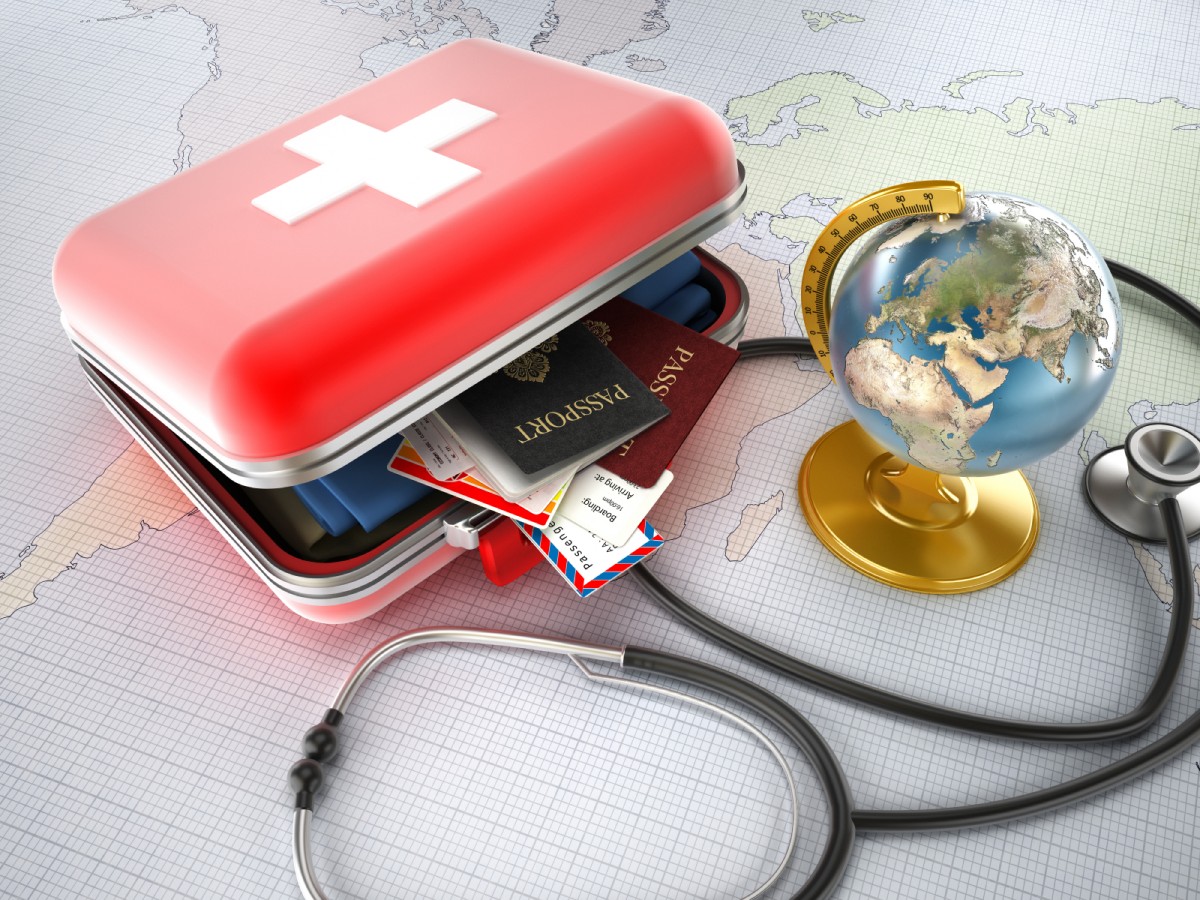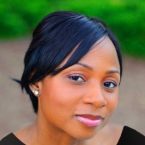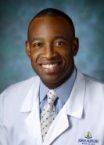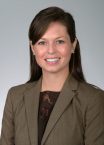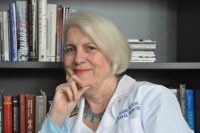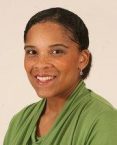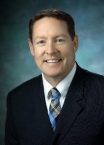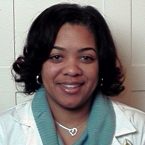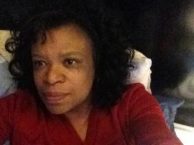Last Wednesday, July 22, we concluded our Journeys in Medicine Series: Exploring the roles race and community play in shaping the Department of Medicine. In response to Dean Rothman’s request to department directors to devise a plan and generate ideas for Hopkins to make a positive impact on the Baltimore community following the riots that ensued after the funeral of Freddie Gray, Drs. Anderson and Golden announced the noon lecture series on May 1, 2015 to provide a forum for discussion among our department’s faculty, staff and trainees. Our series had two objectives:
- To explore how the issues of race and background inform our worldview and relationship to our colleagues as well as our journey to Hopkins, our daily lives and our experience at work.
- To strategize and develop novel approaches to improving our environment, building a stronger culture of respect and helping us to become better change agents to improve our surrounding community.
Our five-part series launched on May 26 with a panel discussion and open forum—“Reflections on Unrest in Baltimore.” Sherita Golden, executive vice-chair shared her personal journey and experiences with race and segregation as well as her hope that we could initiate a dialogue to promote greater understanding and tolerance within the DOM. A panel discussion among a diverse group of faculty (Roy Ziegelstein), nurses (Debbie Mitchell) and trainees (Antonio Graham, Sabra Lewsy) was moderated by Deidra Crews, associate vice chair for diversity and cultural competence, during which several key reflections were shared:
- Sadness and concerns related to Baltimore riots
- Experiences with discrimination and social injustice, from being racially profiled in personal interactions with police, to having family that escaped Nazi Germany
- Desire to better understand the root causes of the riots and to describe potential solutions to the challenges being faced in the community
Session two focused on implicit and unconscious bias, and James Page, vice president for diversity and inclusion for Johns Hopkins Medicine, led an interactive discussion in which he reminded us that diversity is “part of the DNA” of Johns Hopkins as it was a key component of the instructions mandated by Mr. Hopkins upon our founding. Page shared the memorable analogy that diversity is being asked to the dance whereas inclusion is being asked to dance. He reminded us that our decisions are influenced by prior experiences and our cultural, racial and socioeconomic backgrounds. Consequently, preconceptions can lead to false conclusions and affect interactions; therefore there is a need for increased recognition and understanding of our own biases.
Session three was focused on our surrounding Baltimore community and was entitled A Conversation About Community, By Community. Organized by Diane Becker and moderated by Sherita Golden, our panelists included two local pastors—Reverends Calvin Keene and Charles Goods—a community activist, Leon Purnell and Denise Jones, a Hopkins research coordinator born and raised in East Baltimore. This highly engaged discussion highlighted specific community needs where Hopkins might want to partner:
- Providing positive outlets and mentorship for young people as many recreation centers have been closed
- Providing jobs for youth, community members and those who are most marginalized, including ex-offenders
- Contributing sustainable efforts in the community from projects generated by Hopkins faculty and staff—these efforts would be welcomed by the surrounding community
Session four was focused on the interface between our health system and the community—A Conversation About the Healthcare System and the Community. Organized and moderated by Lisa Cooper, our panelists included physicians and physician-scientists (Michael Albert, Kimberly Gudzune, Carlton Haywood, Jr.) working with the East Baltimore community as well as patients (Michelle Simmons and Carlton Haywood) and community activists (Rev. Debra Hickman, Brian Taltoan). This session emphasized the need for:
- Community members to feel that healthcare providers and researchers are trustworthy and have their best interests at heart
- Mutual respect between the community and health care providers and researchers
- Care providers to understand individual patient stories to provide better, more comprehensive care
- Partnership in engaging the community in the conception, design and performance of research/initiatives; following up regarding results and maintenance of long-term relationships following project completion
Our final session on July 22 conceptualized by Chiadi Ndumele and Deidra Crews and moderated by Chiadi Ndumele, included five breakout groups to brainstorm ideas of how Johns Hopkins and the department could address some of the reoccurring issues raised during the series. A summary of actions and recommendations from each group are summarized below.
Group 1: Mechanisms for sustaining and broadening these conversations within the DOM
I. Include these conversations in other forums like Medical Grand Rounds
- Focus on topics like the Henriette Lacks case, Tuskegee experiment and pairing community members with faculty researchers working in the Baltimore community
II. Tell personal stories in addition to the medical stories
- Include stories about the historical significance of individuals living in Baltimore, modeled after “Images in Osler,” during Medical Grand Rounds
III. Nursing Leadership Council
- Discuss presenting topics raised in the Journeys in Medicine series to raise nursing awareness
IV. DOM Nursing Diversity Council
- Develop this new initiative, under the direction of Ron Langlotz, DOM director of nursing, to address diversity and inclusion among nursing and other medical support staff
V. Support divisional activities to address the issues raised in the Journeys series
- Engage faculty and nursing staff in more community outreach and health education in local schools
- Collaborate in community outreach through our influences at professional organizations such as AHA/ADA and others
Group 2: Baltimore youth: providing mentorship and job opportunities
I. Build relationships with more local schools in addition to Dunbar High School
II. Create a database of Baltimore City mentorship opportunities as well as provide guidance on how to be effective mentors
III. Expand mentorship to elementary schools as well to reach children prior to high school
Group 3: Cultural competency training for trainees/providers
I. Assess our current state of cultural competence in the department
II. Develop cultural competency superusers/mentors
- Mentor trainees on cultural competency in a way that is interesting to them given limited education time for trainees
- Overlap with unconscious bias training
III. Teach residents how to have culturally appropriate conversations with patients
IV. Develop cultural competency training to address faculty/staff interactions
- To get to know each other’s backgrounds and circumstances
- To enhance employee engagement
Group 4: Facilitating DOM members’ involvement in community-based research and service
I. Build on successful programs already in place
- Identify programs that may need more resources
- Identify groups at Hopkins already working in the community and partner with them
II. Create database of programs that Hopkins supports, so faculty and staff are aware of opportunities for involvement
III. Involve Hopkins more in community events (e.g., having a presence at events like ArtScape with a booth to do health screenings)
IV. Engage staff in the department—those that are living in the community can provide insight of needs in the community
Group 5: Raising awareness of unconscious bias
I. Conduct unconscious/implicit bias training for all levels of faculty and staff (including School of Medicine faculty and hospital staff)
II. Encourage more staff share experiences
III. Add unconscious bias training as part of service training/education to acknowledge it and learn how to modify it
IV. Engage service of consultants that have existing programs and tools we can use for training
While we are still on the journey to our destination, we are closer than we were at the beginning of this series. As a reminder of the challenges we face on this journey, we leave you with the following article, “A Silent Curriculum.” May we all be aware of the real stories of our colleagues and the patients for whom we care. https://medicine-matters.blogs.hopkinsmedicine.org/files/2015/07/JAMA-Race-in-Medical-Education-2015.pdf
For a PDF of the information from each session, click here: https://medicine-matters.blogs.hopkinsmedicine.org/files/2015/07/Journeys-in-medicine-wrap-up-session-7-22-15.pdf
We would also like to extend a huge thank you to the Journeys in Medicine committee members who helped make this series possible:
